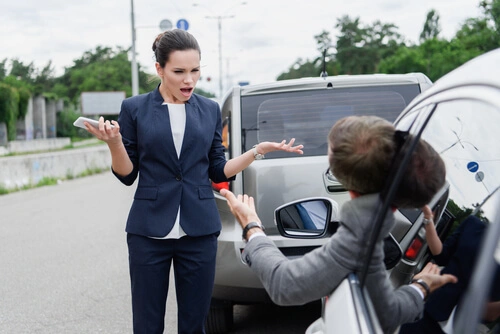Florida Personal Injury Law Guide (2025 Edition)

As of March 24, 2023, the Florida statute of limitations personal injury has been legally reduced to just two years from the date an injury occurs. This critical shift was enacted through HB 837, Florida, a tort reform law designed to streamline claims and reduce prolonged litigation. Previously, injured parties had four years to pursue negligence-based claims. Now, any delay beyond this two-year deadline could automatically disqualify a case, no matter how valid the evidence may be. This makes it more important than ever to understand your rights under the Florida Personal Injury Law Guide and to act quickly following any accident or negligent act.
Quick Reference to 2023–2025 Changes
- The Florida statute of limitations personal injury deadline has been shortened from four years to two years under HB 837 Florida.
- Florida has shifted from a pure to a modified comparative fault system—plaintiffs who are more than 50% at fault cannot recover damages.
- The new law changes how Florida personal injury damages must be proven, allowing only amounts actually paid or payable as evidence.
- One-way attorney fee statutes have been repealed for most insurance cases, changing how litigation costs are handled.
- The personal injury negligence two-year deadline makes it critical for accident victims to file promptly.
- These updates, detailed in the Florida Personal Injury Law Guide, are crucial to building a successful claim in 2025 and beyond.
Fundamentals of Florida Personal Injury Law
Understanding Florida personal injury law requires familiarity with core doctrines like negligence, comparative fault, and damage classifications. This guide breaks down these essentials with relevance to HB 837, Florida, and the current Florida statute of limitations personal injury guidelines.
Negligence & Modified Comparative Fault
Under the new Florida comparative negligence law, plaintiffs who are more than 50% at fault are barred from recovering damages. This standard—known as modified comparative fault Florida—applies to all non-medical negligence claims. If a plaintiff is 50% or less responsible, their awarded damages are reduced by that percentage. This legal shift is outlined in §768.81(6), Fla. Stat.
- Florida personal injury damages are now more influenced by fault percentages.
- This rule makes it vital for attorneys to construct fault arguments that keep their clients below the 51% bar.
Auto-Accident “No-Fault” (PIP) Framework
Florida’s auto insurance system follows the “no-fault” model, with mandatory Personal Injury Protection (PIP) coverage. The Florida PIP 14-day rule mandates that injured parties seek treatment within 14 days of an accident to claim benefits.
- Failure to comply can jeopardize access to up to $10,000 in PIP benefits.
- Coverage includes 80% of medical costs and 60% of lost income.
- Exiting the no-fault framework requires meeting the threshold under §627.737(2).
Victims must also consider how their actions within this 14-day window align with the personal injury negligence two-year deadline.
Types of Damages & Caps
Florida personal injury damages are divided into three categories:
- Economic Damages: Proven expenses like medical bills and lost wages. These now must be documented using paid or payable figures under HB 837 Florida.
- Non-Economic Damages: Subjective harms like pain and emotional distress. These are subject to Florida comparative negligence law reductions.
- Punitive Damages: Rarely awarded and capped at three times the compensatory damages or $500,000, whichever is greater (§768.73).
Letters of Protection (LOPs) must be disclosed under new transparency standards, affecting how Florida personal injury damages are calculated and presented.
| Category | Description | Notes |
| Economic | Medical bills, lost earnings, future care, property loss | Must now be proven with actual paid or payable amounts; LOPs subject to detailed disclosure. |
| Non‑Economic | Pain, suffering, mental anguish, loss of enjoyment | No general caps, but comparative‑fault reductions apply. |
| Punitive | Punishes egregious misconduct | Capped at 3× compensatory or $500k (see §768.73). |
Statutes of Limitation & Repose
Deadlines matter more than ever. The Florida statute of limitations personal injury rule has been slashed to two years for negligence cases. Missing this deadline can void a claim regardless of merit.
| Claim Type | Limitations Period | Authority |
| General Negligence | 2 years | §95.11(5)(a) |
| Medical Malpractice | 2 years (4-year repose) | §95.11(5)(c), Ch. 766 |
| Wrongful Death | 2 years | §95.11(4)(d) |
| Product Liability | 4 years | §95.11(3)(d) |
| Intentional Torts | 4 years | §95.11(3)(n) |
The personal injury negligence two-year deadline under HB 837, Florida, only applies to cases accruing on or after March 24, 2023. Older incidents may still qualify under previous timeframes.
House Bill 837 (2023) – Deep Dive & FAQs
Understanding the impact of House Bill 837 in Florida is essential for anyone pursuing or defending a claim under Florida personal injury law. The 2025 edition of the Florida Personal Injury Law Guide highlights how HB 837 has transformed litigation practices. These changes directly affect how fault is assigned, how long victims have to file claims, and how damages must be proven. Staying informed on this law helps claimants avoid critical mistakes and build a solid foundation under the revised Florida statute of limitations personal injury framework.
How does HB 837 change Florida’s negligence law?
House Bill 837, Florida reforms introduced several procedural and substantive changes. Plaintiffs must now meet stricter evidence standards, and insurers have new protections from bad-faith liability. The modified comparative fault Florida model significantly limits recoveries where the plaintiff shares fault.
What are the headline changes under HB 837?
- Statute of Limitations: The Florida statute of limitations personal injury now spans only 2 years.
- Comparative Fault: Pure → Modified 51 % bar.
- Attorney Fees: Lodestar presumption; repeals one‑way fees in props & auto ins. suits §§626.9373, 627.428.
- Bad‑Faith Standard: Insurers get the safe‑harbor opportunity; claimants must act in good faith.
- Medical‑Cost Evidence: Only amounts paid or payable; future care limited to usual & customary.
- Multifamily Premises Liability: Owners implementing CPTED measures enjoy a presumption against liability.
When does the 2-year rule apply?
This personal injury negligence two-year deadline applies only to incidents occurring after March 24, 2023. This means any accident or injury dated earlier may be judged by the old 4-year rule.
What strategies should plaintiffs use?
- Start the legal process early to protect your claim.
- Keep the client’s fault percentage below 51%.
- Maintain detailed records of medical bills and LOP agreements.
- Consult a Florida personal injury lawyer experienced in HB 837 Florida cases.
What To Do Immediately After an Accident
Our Florida accident checklist helps you respond correctly:
- Call 911 and secure the scene.
- Document with photos, videos, and notes.
- Exchange insurance and driver details.
- File a crash report if injuries or damages exceed $500 (§316.066).
- Seek care under the Florida PIP 14-day rule.
- Save damaged property, receipts, and wage documentation.
- Speak to a Florida personal injury lawyer before giving recorded statements.
Following this checklist helps align your actions with Florida statute of limitations personal injury rules and strengthens claims under the Florida comparative negligence law.
Glossary of Legal Terms
- Florida comparative negligence law: Allocates damages based on shared fault.
- Letter of Protection: Guarantees medical bill payment from future settlements.
- Statute of Repose: Absolute deadline, even if injury discovery is delayed.
- Tolling: Pauses the statute countdown during investigations or delays.
Resource Library (Statutes, Agencies & Forms)
The following resources offer direct access to Florida’s legal statutes, personal injury forms, accident reporting tools, and court information. These official sources are essential for anyone referencing legal claims, understanding procedures under the Florida Personal Injury Law Guide, or filing a personal injury case within the Florida statute of limitations personal injury timeline.
- Florida Statutes (2024): Use this site to access the current text of Florida laws, including §95.11(5)(a), which governs the personal injury negligence two-year deadline under HB 837, Florida.
- Florida Bar Legal Guides: These consumer-focused guides help you better understand Florida personal injury damages, legal procedures, and when to seek help from a Florida personal injury lawyer.
- FLHSMV Crash Portal: A crucial platform for filing accident reports and checking status updates. This tool plays a key role in satisfying reporting requirements listed in the Florida accident checklist and complying with Florida PIP 14-day rule standards.
- Seventeenth Judicial Circuit: Find case details, court forms, and local filing instructions specific to Broward County. This circuit, where Judge William Haury presides, frequently handles Florida comparative negligence law and HB 837 Florida-related litigation.
Judicial Spotlight – Judge William W. Haury Jr.
Judge William Haury has played a pivotal role in shaping personal injury law interpretation in Florida’s Seventeenth Judicial Circuit. With his history in complex civil litigation, including insurance, PIP, and negligence matters, his courtroom decisions have influenced the development of HB 837, Florida-related case law. As a Florida Bar-recognized judge and recipient of the President’s Award, Judge Haury is a figure of authority in applying modified comparative fault Florida standards.
-
- Position: Circuit Judge, 17th Judicial Circuit (Broward County), Division 04 – Civil.
- Appointment: May 30, 2008 by Gov. Charlie Crist.
- Education: J.D., Pace University (1983).
- Notable Matters:
- Certified class actions (e.g., water‑main break business‑interruption claims).
- Presided over Seminole Tribe trust litigation & complex insurance coverage trials.
- Awards: Broward County Bar Association President’s Award (2017) for outstanding service.
- Courtroom: WW16165, West Building, Broward County Courthouse.
Key Takeaways & Next Steps
The Florida Personal Injury Law Guide is your 2025 resource for navigating the latest laws and filing timelines. If you’re dealing with a claim, the Florida statute of limitations personal injury rule, the effects of HB 837, Florida, and Florida personal injury damages caps are critical to understand.
If you’re uncertain about how the personal injury negligence two-year deadline affects your case, speak with the experienced team at MegaJustice. We’re well-versed in Florida comparative negligence law, HB 837, Florida, and claims involving Florida PIP 14-day rule violations.
Contact MegaJustice now for a free, no-obligation consultation.










